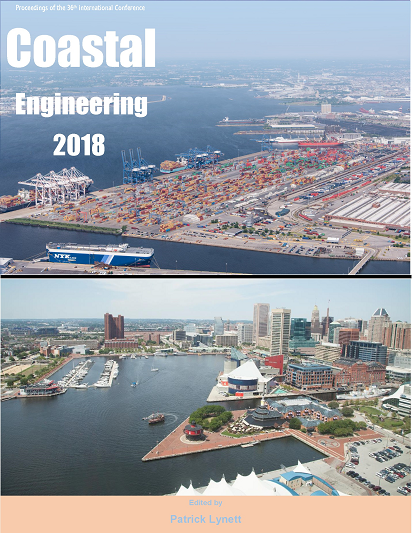Abstract
As coastal development, understanding of coastal hazards and engineering capability have increased over the past century, it has become standard practice to implement risk reduction strategies to mitigate impacts of inundation, flooding and erosion on coastal communities. The implementation process of coastal risk management projects can be simplified to three phases: i) conceptualization, ii) engagement, and iii) execution with project termination possible at any stage. Each phase is affected by both actors and actants (non-human influencers). To date, there have been few attempts to robustly analyze and understand the technical, institutional, financial, social and temporal complexities of these risk management processes. Consequently critical factors that underpin implementation or abandonment of these projects are poorly resolved. For the purposes of this research, the ratio of projects that are constructed or policies which are enacted as compared to those that are abandoned prior to implementation is termed the "implementation gap† (Lowry, 1985). The implementation gap in coastal risk management in Germany over the past 30 years is approximately 50% (Becker, Huitema, & Aerts, 2015). Furthermore, the implementation gap for policy-centric retreat or adaptation projects is wider than for conventional defense (Gibbs, 2016; Heffernan, 2012). While singular case study approaches aid in understanding dynamics of a particular project and location, coastal risk management and climate change literature have both called for creation of a robust framework to examine decision making processes across several case studies to better understand the "adaptation deficit† in climate change adaptation or the "implementation gap† in coastal risk management (Eisenack, et al., 2014; Dow, et al., 2013). Here we summarize the methods undertaken to develop and test a framework reliant on fuzzy cognitive mapping that will allow comparison of the varied social, financial, and institutional influences driving project outcomes in the conceptual design, engagement, and execution phases of coastal risk management implementation. Testing of this framework will be performed with approximately 25 case studies in Hawke's Bay, New Zealand and Terrebonne Parish, United States.References
Becker, G., Huitema, D., & Aerts, J. C. (2015). Prescriptions for adaptive comanagement: the case of flood management in the German Rhine basin. Ecology and Society.
Dow, K., Berkhout, F., Preston, B. L., Klein, R. J., Midgley, G., & Shaw, M. R. (2013). Limits to adaptation. Nature Climate Change, 3, 305-307.
Eisenack, K., Moser, S. C., Hoffman, E., Klein, R. J., Oberlack, C., Pechan, A., . . . Termeer, C. J. (2014). Explaining and overcoming barriers to climate change adaptation. Nature Climate Change, 4, 867-872.
Gibbs, M. T. (2016). Why is coastal retreat so hard to implement? Understanding the politcal risk of coastal adaptation pathways. Ocean & Coastal Management, 107-114.
Heffernan, O. (2012). No Going Back. Nature Climate Change, 491, 659-661.
Jetter, A. J., & Kok, K. (2014). Fuzzy Cognitive Maps for futures studies - A methodological assessment of concepts and methods. Futures, 45-57.
Kosko, B. (1986). Fuzzy cognitive maps. International Journal of Man-Machine Studies, 65-75.
Lowry, K. (1985). Assessing the Implementation of Federal Coastal Policy. Journal of the American Planing Association, 51(3), 288-298.
Ozesmi, U., & Ozesmi, S. L. (2004). Ecological models based on people's knowledge: a multi-step fuzzy cognitive mapping approach. Ecological Modelling, 43-64.

